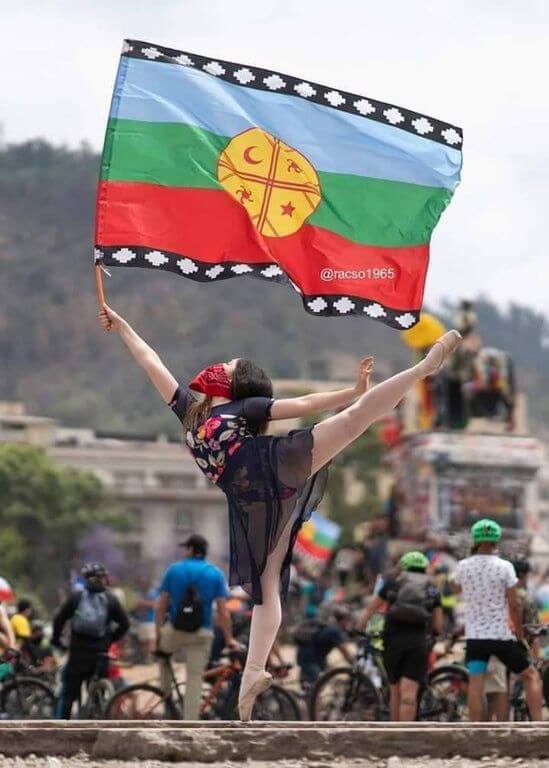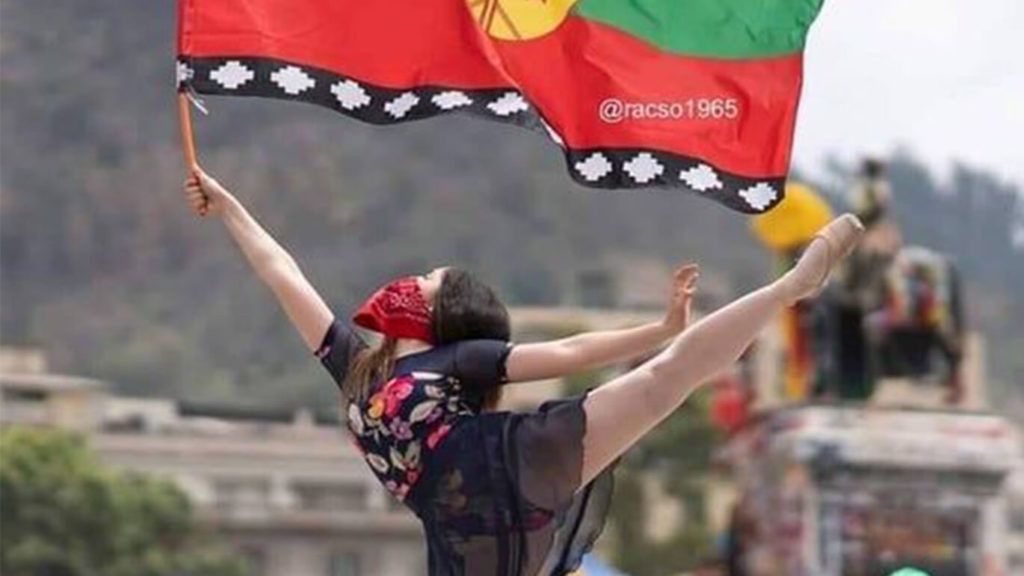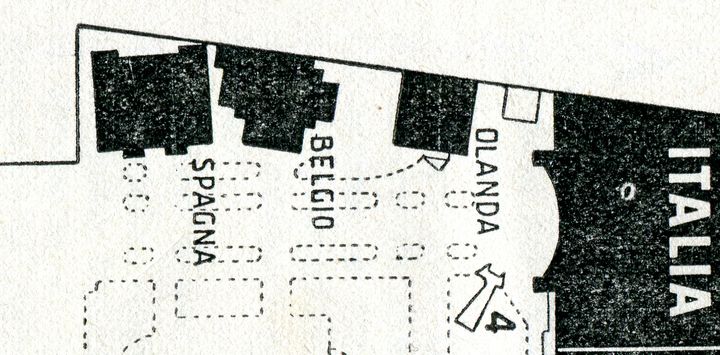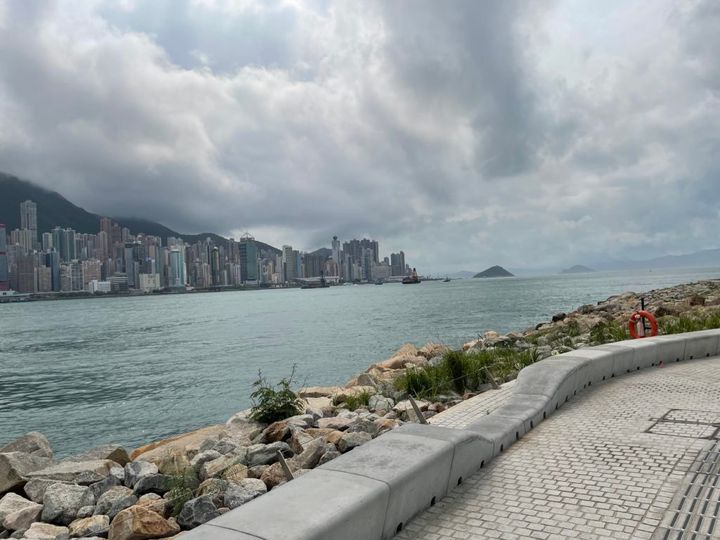October 2019 marked a watershed in Chile´s recent history, as millions took the streets in almost four weeks, defying a military curfew and increasing police brutality. Synchronized with processes of social upheaval taking place in other latitudes from Hong Kong and Ecuador to the very core of the North Atlantic zone, the Chilean revolt could be hindered only by blatant facticity—under the form of a parliamentary agreement of “pacification” and the promise of a new constitution, first, and a global pandemic, later.
The trans-political-parties’ agreement of November 15, 2019 was sped up by disinformation about the imminence of a military coup. Spurious since its inception, it was naturally insufficient as well as inadequate, contrasting with the actual maturation of the social programme at that moment. A new constitution was certainly one of the social movements’ earliest demands, and by mid-November it was being widely discussed in local assemblies (also called cabildos) as a Plurinational Constituent Assembly, with no subordination nor constraints from current political incumbents and powers. The 15N institutional agreement, on the other hand, promised a very restricted and uncertain road to a constitutional change, and left similarly unaddressed the more immediate, social and economic topics of the movement´s programme.
The 15N was the first of a series of sequential failures from the parliamentary left to deepen Chile’s destituent/constituent movement, acting as a brake rather than as a catalyst. And yet, notwithstanding the ties and constraints of the compromised process, and under an ongoing collapse of parliamentary parties’ legitimacy and levels of approval, the people felt the new constitution to be their own victory and went en masse to ballot last October 25 to vote ‘Yes’ to a new constitution via a convention totally elected to that end—the other option being a mixture of new staff and currently-in office congresspersons. Witnessing a significant increasing of total ballots led by young, first-time electors, almost four out of five voters opted for the most democratic choice available, in a moment in which the chances for the representation of independent candidates and indigenous and ethnic minorities were still in jeopardy.
Between October 2019 and October 2020, a global pandemic occurred that brought the mobilization to a standstill. As the economy crashed and unemployment skyrocketed, the social fabric reinvigorated during the revolt was reoriented and took the form of what feminist activists call “communities of care”. The organization of countless “ollas comunes” (community cooking pots) across the country, along with other distribution networks, provided segments of the population a means to prevent a more dramatic outcome, but only partially—in Chile, like elsewhere, the pandemic’s deathly bill has been paid by the poorer and more marginalized.
It is difficult to be optimistic with a process so tied up by institutional constraints. Nonetheless, the referendum’s turnout first (more surprising when its non-mandatory character is considered), and more recently the massive sponsoring of independent candidates, demonstrate that people have not renounced the further democratization of the constitutional process. It seems as if with every signal emanated from institutional politics—by and large uttered with the mantra of “this is as far as it is possible to reach” (the mantra of politics for the past 30 years, that is)—, people find their way to respond with sturdy claims for more democracy—not in its given, liberal form, but rather as true self-determination.
It is symptomatic that, at its peak in November 2019, the social movement articulated the demand of a Plurinational Constituent Assembly. Chile stands out among other Andean countries in its colonial history and present, abiding till this day of intensification in a long-lasting State war against Mapuche people, particularly in the Wallmapu (which means ‘all theMapuche territory’). A thorough study of Chile’s racial capitalist formation is yet to be undertaken. Even so, in a country in which the wage of whiteness pays off very well, the ubiquitous display of Mapuche flags (Wenufoye and Wüñelfe) on houses and in rallies all over the country signalled the popular recognition that contemporary dispossessions are made up of long-lasting materials. Synced with similar demonstrations across the world, the toppling of colonial statues has been a landmark of the revolt’s cycle.
Undoubtedly, recent public awakening regarding police brutality (not just against protesters, but as a day-to-day reality especially in slums and the Wallmapu), has been instrumental in such recognition. And more than a few commentators have indicated that the massive repudiation—both in the streets and in public opinion— to Camilo Catrillanca’s cowardly murder from behind by the police in November 2018 may well be placed as an antecedent of the outbreak sparked by a metro fare price hike in October 2019. It is important to also notice that the Chilean revolt took place after the government’s display of a thoroughly manipulated and un-consulted process for a new indigenous bill since 2017, a process that was widely contested by indigenous organizations and communities. Neither police and legal operations nor the indigenous consultation observe any of the ILO recommendations in these cases.

The ensuing general indignation at the mutilation of protesters eyes by police since the revolt’s outbreak has just shattered the image of an institution that not long ago indulged itself to be the most trusted and accountable of its kind in the whole region. The call for abolishing police institutions is also synced with similar demands in the US and elsewhere. A few weeks ago, after yet another hoaxed raid by the police under government orders in the Wallmapu, Mapuche communities convened in a Lef Trawün (urgent meeting) the creation of a Mapuche community police was agreed upon.
With all its flaws, it is my view that Chile’s constitutional battle points to the core of the neoliberal agenda in the region. Not by chance, the few concessions to the process are related to two of the most prominent social movements of the last years. Women and indigenous communities are the preferred target of long-lasting neoliberal policies of life’s precarisation, from the usurpation and/or spoiling of the Wallmapu ecosystem by extractive industries to the burdens of unpaid, unrecognised labour and patriarchal violence. Consequently, the new constitution promises to be the first of its kind to be elaborated in parity between men and women. Moreover, 17 seats of the Constituent Convention were guaranteed to the 10 institutionally recognized indigenous peoples that inhabit Chile, although the same right was firmly denied in parliamentary discussion to Chilean Afro-descendants.
The social movements that raised the demand of a new constitution are committed to accomplish it via the democratization of the current process, by transforming it into a truly Plurinational Constituent Assembly. Social reproduction has since emerged as a pivotal dimension of social conflicts in the discourse of various sectors of the movement, in line with demands for the change of the now privatised pension system, a significant rise in real wages, quality public education and healthcare systems, free abortion, and an ecologically sustainable productive matrix. Buen Vivir (‘good living’) is taking its place as a driving force of these struggles.
However, the process has also been the ground for the surfacing of fascist tendencies among defenders of the neoliberal status quo. The early creation of paramilitary groups in Wallmapu just heralded similar organisations in the most conflictive cities since the revolts cycle. In parallel, ultraconservative sectors have found room in right-wing political arrangements, as the sector continues to disengage with its own, partially delinking from authoritarian discourses and figures (such as Pinochet himself). The ground is thus ready for the realignment of the political right under the ideas of homeland, order, family, and private property—the very same ideas that served as justification for Allende’s toppling, almost half a century ago.
One of the Chilean revolt’s most known mottos says: “Neoliberalism was born in Chile and will die in Chile”. The transgenerational memory of the region is well aware of the intimate entanglement of neoliberalism and fascism; however, this is something that North-Atlantic social scientists and public opinion have just recently problematised (or rather “discovered”). The ideological construct that portrays neoliberalisation processes as peaceful, democratic, free developments, is finally showing its ugly face all over the world, from India, Bolivia, Brazil, and Turkey to Hungary, Italy, the UK, and the US. As demonstrated time and again since its Chilean first, “lab” iteration, neoliberal governmentality responds to the increasing of social unrest with the intensification of the corporatism of capitalist institutions—the post-2008 global crisis being perhaps a new stage in its development.
Against a regime organised under a neoliberal constitution, the Chilean constituent movement has been fought back by police and military brutality, paramilitary terror, never-ending curfews, corporate indolence, disinformation campaigns, and parliamentary arrangements. This may well serve as a demonstration of the upcoming global struggles for good living and against neoliberal management of society, be it either in its democratic or fascist Juno-face—as it becomes clearer and clearer that the two facets were never actually detached. The confluence of feminist, indigenous, ecological, and worker’s movements has not yet produced in Chile a political programme founded on the principle of good living, nor is it clear if they can produce one on time for the constitutional battle. And yet, it is an urgent task.
Chile’s constitutional itinerary will proceed with the election of 155 constituents (half of them women, and 17 elected only by indigenous individuals) in mid-April. Then, the elected body will assume the task of elaborating the new fundamental text, a process that may last between 9 and 12 months. Halfway, a presidential and parliamentary election will be held. The resulting text should finally be endorsed in a mandatory referendum; if dismissed, Pinochet’s constitution will remain in place. The Chilean destituent/constituent movement has worked against the grain of institutional politics in further democratising a process oriented to good living; in doing so, it has further shaken the fascist beast. There are no guarantees of the outcome. No shortcuts nor room for romanticising. In Chile, we will fight a battle that touches the heart of colonial, patriarchal neoliberal capitalism.
Felipe Lagos-Rojas is a researcher at the International Institute for Philosophy and Social Studies (IIPSS) in Santiago de Chile. Felipe is responsible for the Latin American Critiques Programme at IIPSS. Email: flagos@iipss.com.



